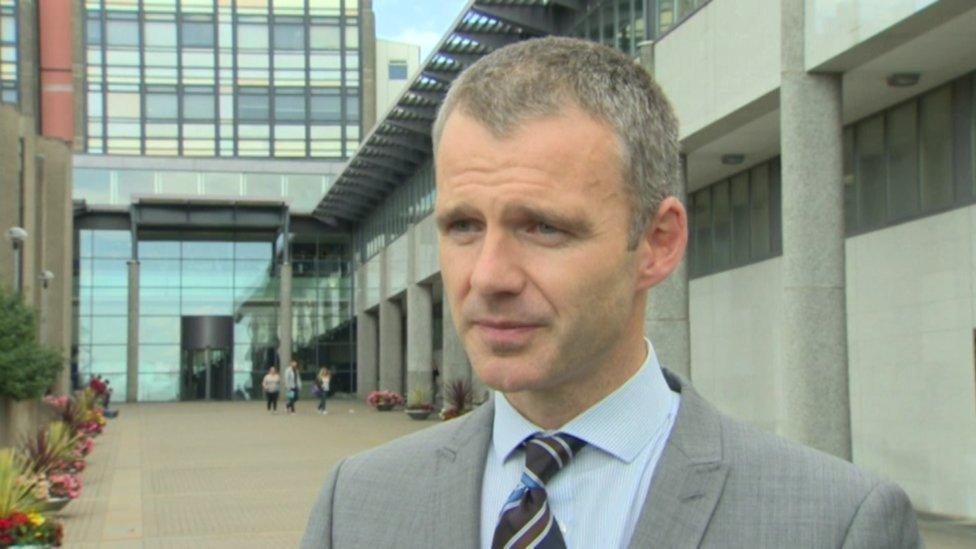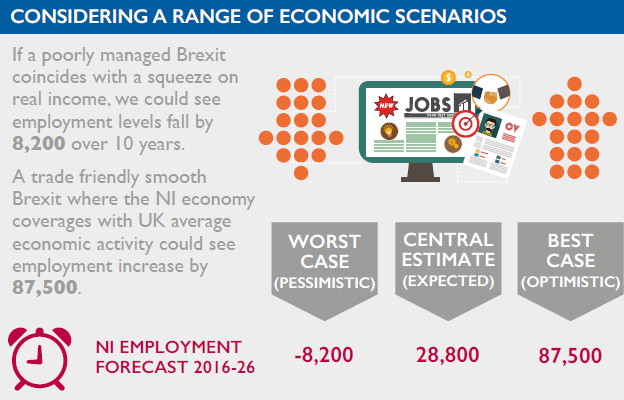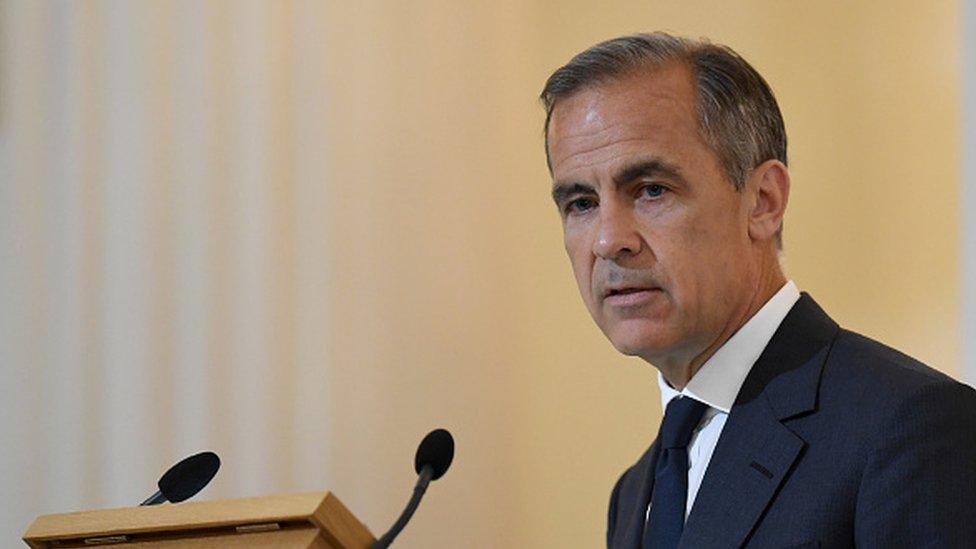'Brexit effect' predicted to slow NI growth, says UUEPC
- Published

Gareth Hetherington is associate director of Ulster University's Economic Policy Centre
Economic growth will slow to 1.1% this year compared to 1.5% in 2016, a report from Ulster University has forecast.
It said the slowdown in Northern Ireland reflects a "Brexit effect" from lower levels of business investment and a squeeze on consumer spending.
It considered a wide range of scenarios for the UK's future outside the EU.
It said a worst-case scenario of a "poorly managed" Brexit, combined with a squeeze in real incomes, could see employment fall by 8,200 over 10 years.
That would have a particularly negative impact on the manufacturing sector.
'Challenge'
But the report from the university's Economic Policy Centre (UUEPC) also said a best-case scenario of a "smooth transitional" Brexit, combined with convergence towards UK economic performance, could create 87,500 jobs over the same period.
The report predicted that the most likely outcome is an increase in employment levels of 28,800 over the decade.

The UUEPC report predicted worst case, best case and most likely post-Brexit employment levels
UUEPC associate director Gareth Hetherington said: "Due to the potential for significant policy shifts with respect to migration, trade, funding and borders, the range of potential labour market outcomes in the longer term remains wide.
"However, the key determinant of success will be the outcome of the Brexit negotiations.
"In the interim, this presents a challenge to key decision makers in business and government alike," he added.
- Published20 June 2017
- Published20 June 2017
